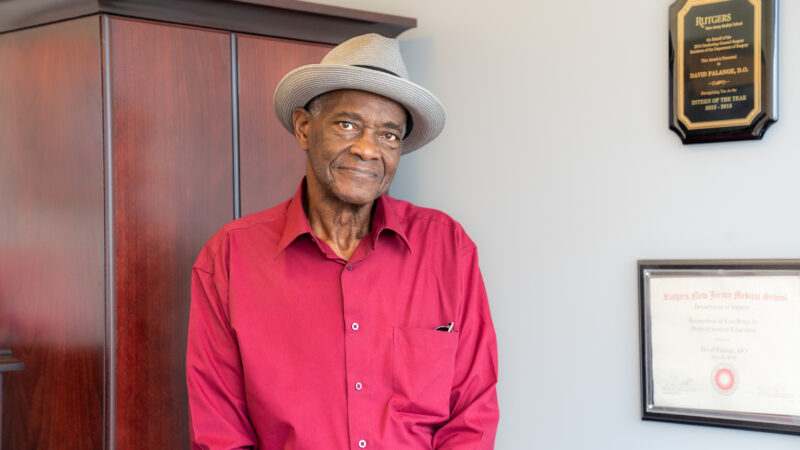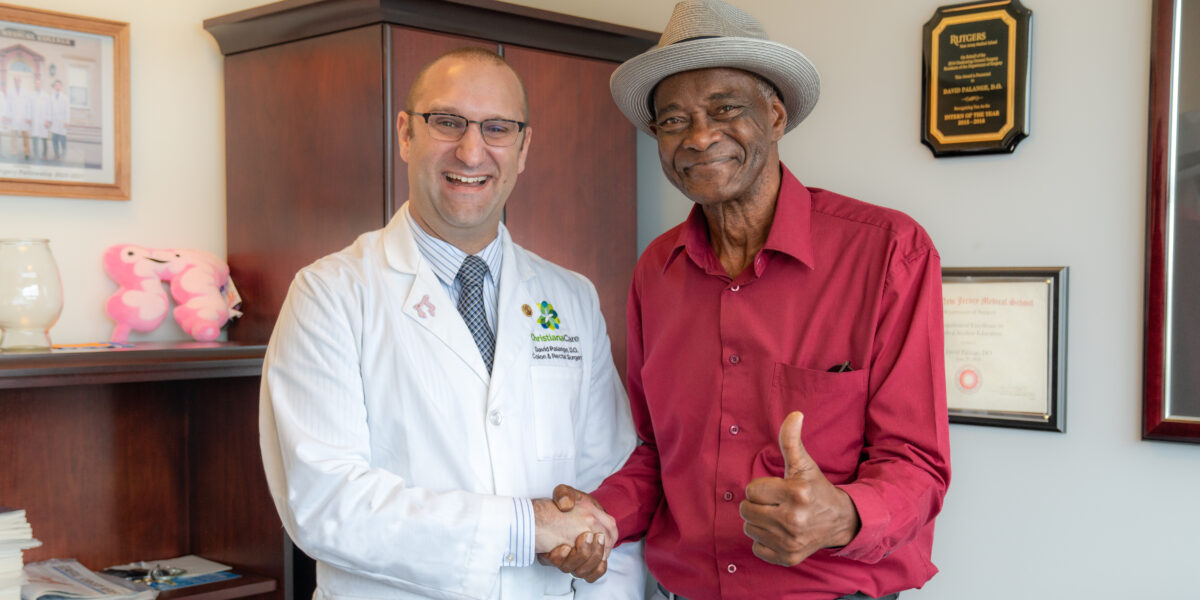Ronald Brown knows plumbing. Decades of experience as a big-box store plumber taught him how to keep the pipes open and running smoothly. Still on the job at age 70, Brown began to experience rectal bleeding and discomfort.
“I knew then it was time to get my own plumbing checked,” he said.

A colonoscopy revealed a large rectal tumor that would turn out to be cancer and had to be surgically removed.
Click here to connect with the Helen F. Graham Cancer Center & Research Institute or call 302-623-4500.
That is when Brown met Colon and Rectal Surgeon David Palange, D.O., at ChristianaCare’s Helen F. Graham Cancer Center & Research Institute.
“In the old days, removing a tumor like Ron’s involved extensive abdominal surgery with lots of surgical risks and an extended, painful recovery,” Palange explained.
“I was on pins and needles about having surgery, but Dr. Palange told it to me straight without frightening me,” Brown said. “I was confident that he would take good care of me.”
Considering the characteristics of Brown’s tumor, Palange offered the possibility of a less invasive treatment called transanal, minimally invasive surgery (TAMIS), available in Delaware only at the Graham Cancer Center.
A large cancer center with skilled experienced surgeons is necessary to perform this procedure. Common indications for TAMIS are noncancerous large rectal polyps too big for removal during a colonoscopy as well as some small, early-stage rectal cancers.
“We’re a comprehensive, academic cancer center, so our patients have access sooner to the newest and best care available.”
— David Palange, D.O
With TAMIS there is no incision. A small gel-like port opens the anus and allows passage to the rectum. Guided by a small camera, Palange skillfully inserted tools designed for laparoscopic surgery through the port to remove the tumor.
“Our ability to use a less invasive approach to remove Ron’s tumor through a natural opening in the body without any incisions greatly reduced the surgical risks and discomfort as well as the costs of traditional open surgery,” Palange said.
“We’re a comprehensive, academic cancer center, so our patients have access sooner to the newest and best care available.”
With TAMIS there is less bleeding, less risk of infection, quicker recovery and fewer complications. Palange was able to remove Brown’s cancer with no further treatment required.
Brown stayed in the hospital overnight and went home after breakfast the next morning.
“At the cancer center I felt the staff really cared about me, and that put me more at ease about the procedure,” Brown said.
“I was glad I could stay in Delaware for care like this where it feels more like home.”



